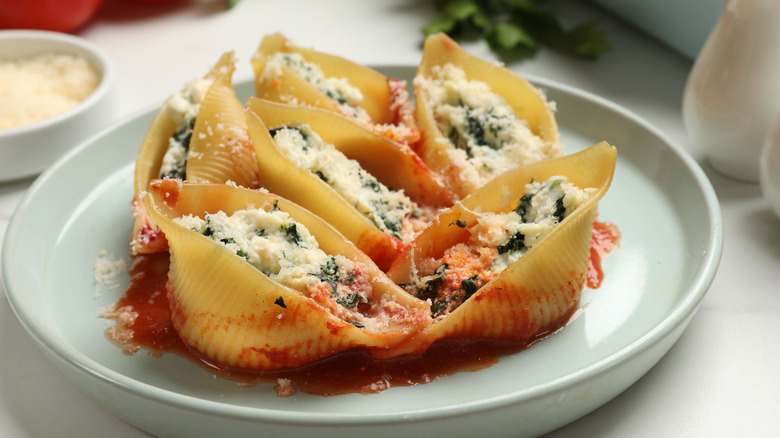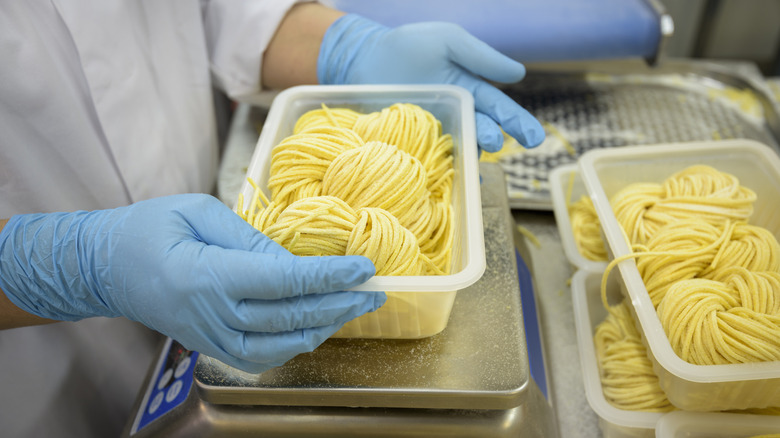This New Jersey-Based Company Had One Of The Largest Pasta Recalls In The US
When many people think of food recalls, their minds may go to contaminated vegetables or spoiled meat products. However, these unfortunate incidents can also strike many other kitchen staples, including pasta. In 2024, that's precisely what happened to New Jersey-based pasta maker Joseph Epstein Food Enterprises, which supplies brands like Mama Mancini's and Hungryroot.
The November recall affected over 2,300 cases of ricotta-stuffed shells and stuffed shells with sauce and mozzarella distributed in six states: Arizona, California, Delaware, Indiana, Minnesota, and New Jersey. Both products may have been contaminated with listeria, a foodborne bacteria that can cause fever, chills, nausea, and diarrhea in otherwise healthy people. For young children, older individuals, and those with weakened immune systems, even more severe illnesses or death can result from infection.
Although the recall was voluntary, the seriousness of the potential consequences led Joseph Epstein Food Enterprises to pull these products from circulation. Nevertheless, the risk was low as indicated by the FDA's Class II designation for the action. Class II recalls are less severe than Class I designations, but in the FDA's words, there's "still the possibility of serious enough adverse events to have irreversible consequences."
No risk to consumers
This combination of active prevention and lower danger led to no reports of injuries or illnesses linked to the pasta. As Mama Mancini's told Newsweek, "All affected product was quarantined and recalled before it was distributed to end consumers." The recall was terminated in late March 2025. Despite this, it remains high on the list of the biggest pasta recalls in U.S. history.
This was not the first recall to strike Joseph Epstein Food Enterprises. In 2015, the company's Mama Mancini's gluten-free turkey meatballs and Mama Mancini's Slow Cooked Italian Style Sauce were recalled after testing revealed they contained more than the allowable amount of gluten, making them potentially dangerous to people (such as those with celiac disease) following gluten-free diets. Fortunately, that recall only affected 190 pounds of food and didn't result in any illnesses.
It's understandable that recalls may be concerning to grocery shoppers and restaurant diners, especially when they involve a potentially harmful pathogen like listeria. However, with no adverse health effects and a quick resolution, it's also easy to see the recall as evidence of a food safety system working as intended.

